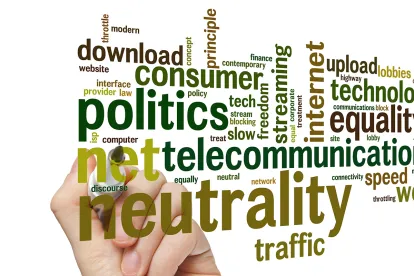SAS Administrators Approved for Full Deployment in 3.5 GHz Band
The FCC issued a Public Notice last week certifying CommScope, Federated Wireless, Google, and Sony as Spectrum Access System (SAS) Administrators in the 3.5 GHz band and approving their full commercial deployment (Vol. XVI, Issue 38). As part of a two-stage review process, the SAS Administrators successfully completed an initial commercial deployment before receiving certification. They must continue to comply with current and future FCC rules as well as certain obligations set forth by the Wireless Telecommunications Bureau and the Office of Engineering and Technology. The Commission also noted that the transition period for grandfathered operations in the band will end on April 17, 2020, or at the end of their license term, whichever is later.
FCC Adopts Rural Digital Opportunity Fund Order
The Commission adopted an Order last week establishing the $20.4 billion Rural Digital Opportunity Fund (RDOF) and the criteria for the eligible unserved areas and bidding procedures for the $16.0 billion Phase 1 auction. (Vol. XVII, Issue 2). The bid assignment procedures increase the likelihood that the lowest weight (highest data rate and lowest latency) bids—fiber-based networks—will be assigned support. The Letter of Credit obligation was relaxed considerably; as award recipients meet their buildout milestones, the company’s LOC amounts will either decline or stabilize, incenting winning bidders to deploy networks as soon as possible. The FCC intends to initiate the Phase I auction later this year. The second phase of the RDOF will make available at least $4.4 billion, plus amounts not awarded during the Phase 1 auction and, possibly, additional funds. The Phase 2 auction will not take place until after the FCC modifies the broadband data collection and mapping procedures in its Digital Opportunity Data Collection proceeding.
GAO Issues FirstNet Report
The Government Accountability Office issued a Report of its review of FirstNet’s progress and oversight. The restricted version of the Report was issued last month. While GAO found that FirstNet was on track to meet its milestones, it also found that FirstNet “lacked (1) a reliable master schedule to review, (2) communication with relevant stakeholders regarding contract oversight, and (3) meaningful information on end-users’ satisfaction to gauge performance quality.” Regarding the master schedule, GAO found that the schedule provided by AT&T does not meet the standard set by GAO best practices. In its review of stakeholder communication, GAO interviewed public safety officials and found that many were dissatisfied with the level or quality of information provided by FirstNet. Finally, while AT&T surveys some users to ask if they would recommend FirstNet services, GAO found that this may not directly speak to end-user satisfaction. FirstNet agreed with GAO’s recommendations.
E-Rate Amortization Requirement Eliminated
Last Monday, the FCC released a Report and Order eliminating the E-Rate program’s amortization requirement for schools and libraries. Previously, E-Rate applicants were required to amortize over three years upfront, non-recurring charges of $500,000 or more, including charges for special construction projects. Based on its experience suspending the requirement over the past four years, the Commission stated that eliminating it will likely increase buildout and deployment of high-speed broadband networks due to the ability to pay for special construction costs upfront, instead of incrementally over time.
OIG Issues Compliance Advisory on Lifeline Usage Rule
The FCC’s Office of Inspector General issued an Advisory Memorandum last week to alert Lifeline carriers, beneficiaries, and the public of the potential for widespread carrier non-compliance with the Lifeline usage rule. The Commission launched an investigation into Sprint last September (Vol. XVI, Issue 39) for allegedly receiving Lifeline subsidies for consumers who should have been de-enrolled from the program for non-usage, and stated that it is currently investigating other eligible telecommunications companies for significant potential violations of the usage rule. The OIG also stated in the memorandum that some ETCs regularly sought and received subsidies for accounts with no qualifying usage within the timeframe required by rule, and that some sought reimbursement for providing service to accounts that never had any qualifying usage.







 />i
/>i

